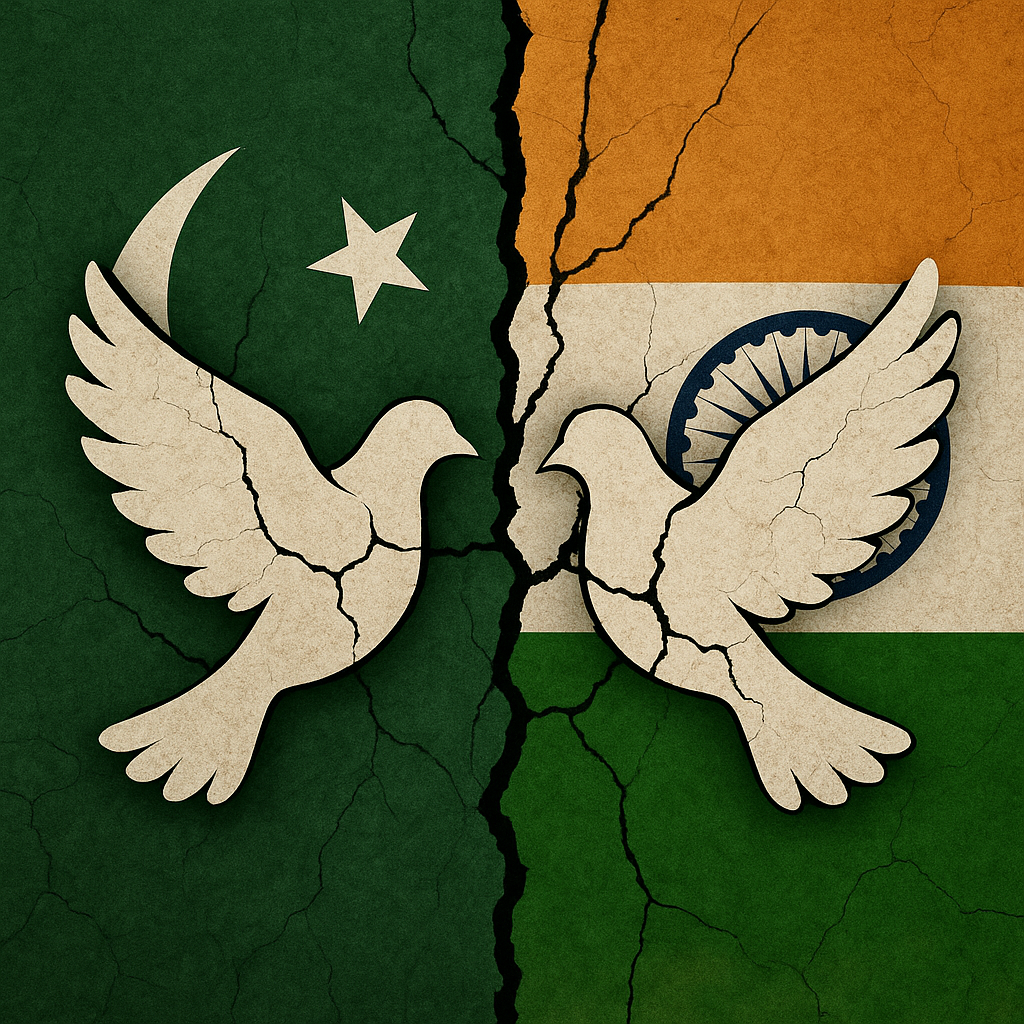The tenuous ceasefire agreement between India and Pakistan, heralded earlier today as a diplomatic breakthrough, has disintegrated within mere hours, reigniting hostilities between the two nuclear-armed neighbors. The collapse has plunged South Asia back into a state of heightened military alert, following weeks of deadly conflict and terror-linked violence in Kashmir.
The ceasefire, reportedly brokered with behind-the-scenes mediation from the United States, was expected to come into effect at 5 PM IST. Pakistan’s Director General of Military Operations (DGMO) had communicated the commitment to their Indian counterpart earlier in the day. The move followed India’s forceful military campaign — Operation Sindoor — launched in retaliation to the April 22 terror attack in Pahalgam, which killed 26 civilians, including many tourists.
But optimism proved short-lived.
By Saturday evening, fresh reports emerged of drone incursions from across the border and renewed cross-border shelling in Jammu and Kashmir. Air raid sirens rang out across Srinagar, Udhampur, and Jammu, with explosions reportedly heard near civilian settlements. The Indian Army’s anti-drone units successfully neutralized several UAVs near the Naushera and Mendhar sectors, though sporadic artillery fire continued into the night.
A senior Indian military official confirmed, “The ceasefire has effectively collapsed. Pakistan violated the terms within hours by resuming offensive actions, including drone surveillance and shelling.”
Earlier in the day, Foreign Secretary Vikram Misri had stated that the ceasefire was a bilateral agreement, denying claims of foreign involvement. However, U.S. President Donald Trump had claimed credit, calling the ceasefire a “testament to American diplomacy,” a statement now cast in doubt by the ground reality.
The renewed escalation has thrown the May 12 peace talks into uncertainty. Diplomatic observers believe the trust deficit between the two nations is now deeper than ever. Pakistan’s Defense Ministry, in a statement late Saturday, accused India of “provocation and war hysteria,” vowing to respond “decisively to any aggression.”
Meanwhile, India’s armed forces remain on high alert, with reinforcements rushed to forward posts along the International Border and Line of Control (LoC). Military convoys, drone jammers, and surveillance units have been spotted moving across several northern districts.
The United Nations and European Union have both appealed for de-escalation, urging restraint and a return to dialogue. But analysts warn that the rapid unraveling of this ceasefire highlights the fragile, mistrust-laden nature of India-Pakistan relations — especially in the wake of acts of terrorism and deep-seated territorial disputes over Kashmir.
With both militaries bracing for further conflict, the region teeters on the edge, and the hope of lasting peace seems more distant than ever.













